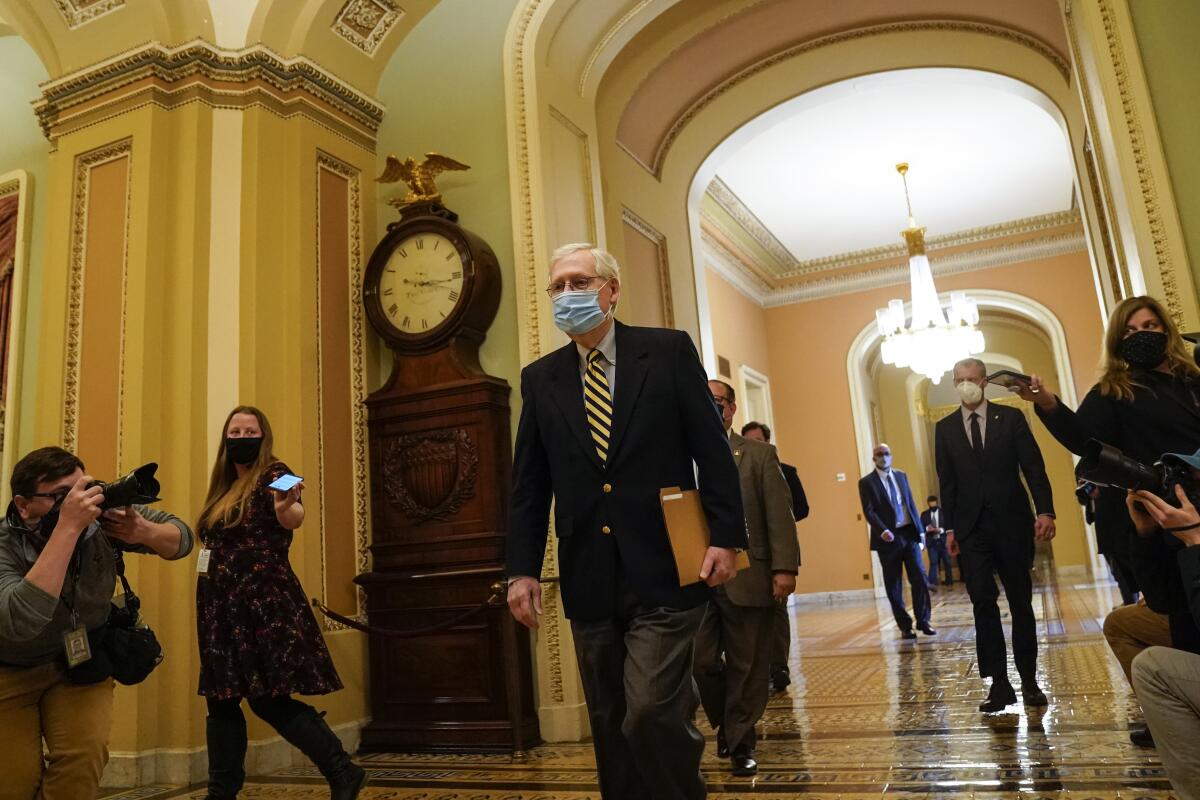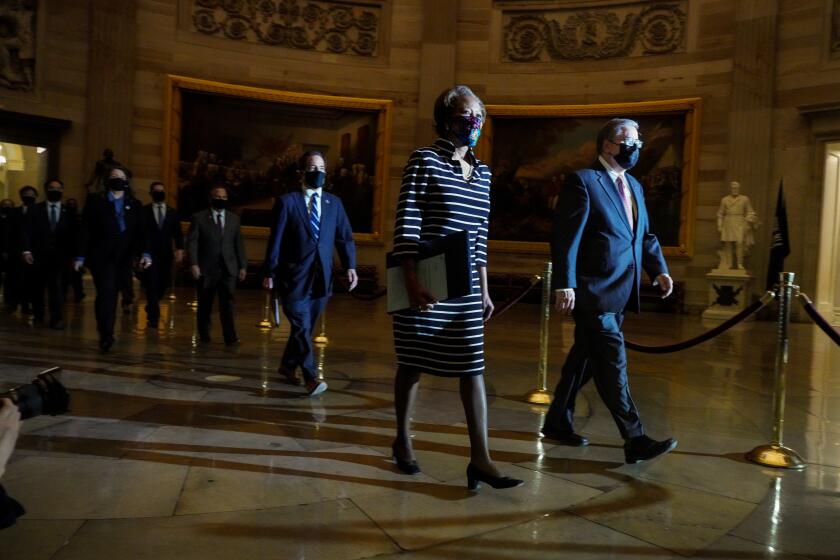McConnell says he’ll make deal with Schumer on Senate power-sharing

- Share via
Senate GOP leader Mitch McConnell of Kentucky said he’s dropping a key demand and is ready to move toward a power-sharing agreement after two Democratic senators pledged they won’t vote to do away with the filibuster.
McConnell had refused to agree to any deal with Majority Leader Charles E. Schumer of New York to share power in the 50-50 Senate without a promise that Democrats wouldn’t jettison the rule that allows the minority to block legislation by requiring 60 votes to advance most legislation.
Schumer rebuffed the idea of a guarantee. But McConnell said statements from two Democratic senators, Joe Manchin of West Virginia and Kyrsten Sinema of Arizona, were enough.
Manchin told reporters Monday he “does not support throwing away the filibuster under any condition.” A spokesman for Sinema said she also was against eliminating the filibuster.
“The legislative filibuster was a key part of the foundation beneath the Senate’s last 50-50 power-sharing agreement in 2001,” McConnell said in a statement. “With these assurances, I look forward to moving ahead with a power-sharing agreement modeled on that precedent.”
Justin Goodman, a Schumer spokesman, said in a statement that, “We’re glad Senator McConnell threw in the towel and gave up on his ridiculous demand. We look forward to organizing the Senate under Democratic control and start getting big, bold things done for the American people.”
House Democrats carried the sole impeachment charge of ‘incitement of insurrection’ across the Capitol on Monday evening to the Senate.
In an interview on MSNBC recorded earlier Monday, Schumer said Democrats wouldn’t let McConnell “dictate” how they deal with Senate business. He accused McConnell of “trying to blockade everything.”
Manchin’s and Sinema’s stances aren’t new, but they indicate the tenuousness of the Democrats’ control of the chamber. They need all 50 Democrats in lockstep, and with the filibuster in place they’ll need 10 Senate Republicans to join them on most bills. In votes where only a majority is needed, Vice President Kamala Harris can break a tie.
Under the agreement in place in 2001, the last time the Senate was evenly split, both parties had an equal number of committee seats equal budgets for committee Republicans and Democrats, and the ability of both leaders to advance legislation out of committees that are deadlocked. But Democrats will hold the chairmanships and Schumer will set the agenda for the floor.
Some issues can be passed with a simple majority via a balky process known as budget reconciliation, but that method has limits on what can be included and when. Already, Democrats are weighing whether to use the process to bypass Republicans on a major virus relief package Schumer wants to send to the White House by mid-March, with a follow-on package later in the year.
Manchin and Sinema, however, are among the Democrats trying to cobble together a bipartisan package that would be smaller than the $1.9 trillion plan President Biden has proposed. If no such deal comes together before the Feb. 8 start of arguments in the impeachment trial of former President Trump, that could spur Democrats to go it alone.
The Senate has only been evenly divided three times before: in 1881, 1953 and 2001.
Federal authorities are examining a number of threats aimed at members of Congress as the second impeachment trial of President Trump nears.
More to Read
Get the L.A. Times Politics newsletter
Deeply reported insights into legislation, politics and policy from Sacramento, Washington and beyond. In your inbox twice per week.
You may occasionally receive promotional content from the Los Angeles Times.










